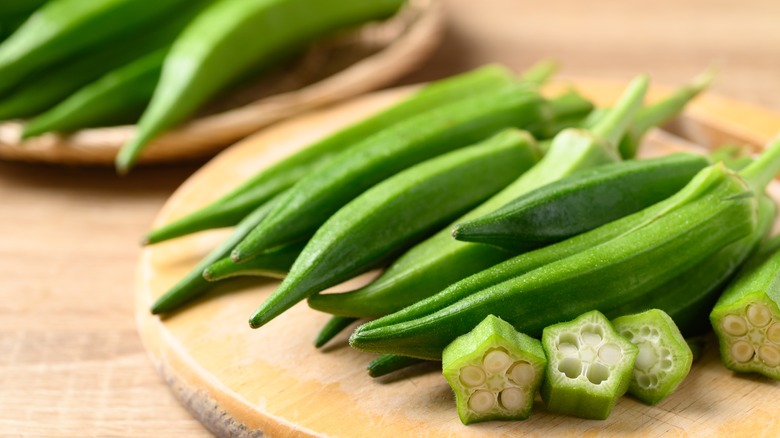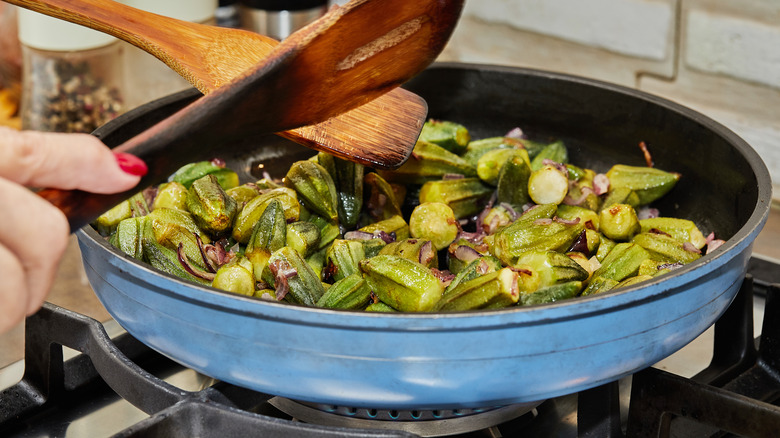A Vinegar Soak Is All You Need To Combat Slimy Okra
For the crime of slime, okra has been exiled from many kitchens. And even while okra's sliminess is useful in certain dishes, like gumbo, the potential texture that pervades when preparing okra dishes far outweigh the results for some. Regardless, from West Africa to the South, okra admirers across the globe have found ways to reform it for a less slimy experience, including a simple yet effective vinegar soak.
A vinegar bath works to combat okra's sliminess by dissolving its gelatinous substance. To understand this, we have to look at okra's composition. You won't be able to tell by just looking at it, but the green okra pod you see is made up of a gel-like substance. This is why it's called a mucilaginous food. Once mucilaginous foods like aloe, flax seeds, or slippery elm come into contact with water, their fiber begins to dissolve and they turn slimy.
To reduce okra's sliminess, you have to change its pH balance by adding an acidic element. Acidic ingredients like tomatoes and vinegar do a good job of making okra less viscous and slippery. Using 125 milliliters of vinegar for every 500 grams of okra, simply add the okra to a bowl of vinegar and let it soak for 30 minutes. This gives it enough time to break okra's slime down to a less viscous consistency.
High heat also works wonders for okra's sliminess
A more intense approach involves cooking okra at high temperatures. If you're familiar with this crop, you've probably noticed that it gets more slimy the longer you cook it. The simple solution is to cook it for a short time at high heat. At a temperature of 194 degrees Fahrenheit, okra's mucilaginous properties decrease and it becomes less viscous.
You can grill, saute, roast, deep fry, or blanch okra using high heat. Among the most popular recipes is pan-fried okra. While thinning its gel on the interior, this method dries okra's exterior so that you end up with crispy okra that's moist at its center. But you don't have to stop there — you can add a splash of acid to your okra while it cooks to doubly counter the slime.
Of course, a combination of the vinegar soak and high heat is bound to deliver excellent results. And using one method or the other will likely suffice. But all things considered, you only need vinegar to make okra less slimy. Once you've soaked the okra in vinegar, pat it dry and cook it as you normally would.

